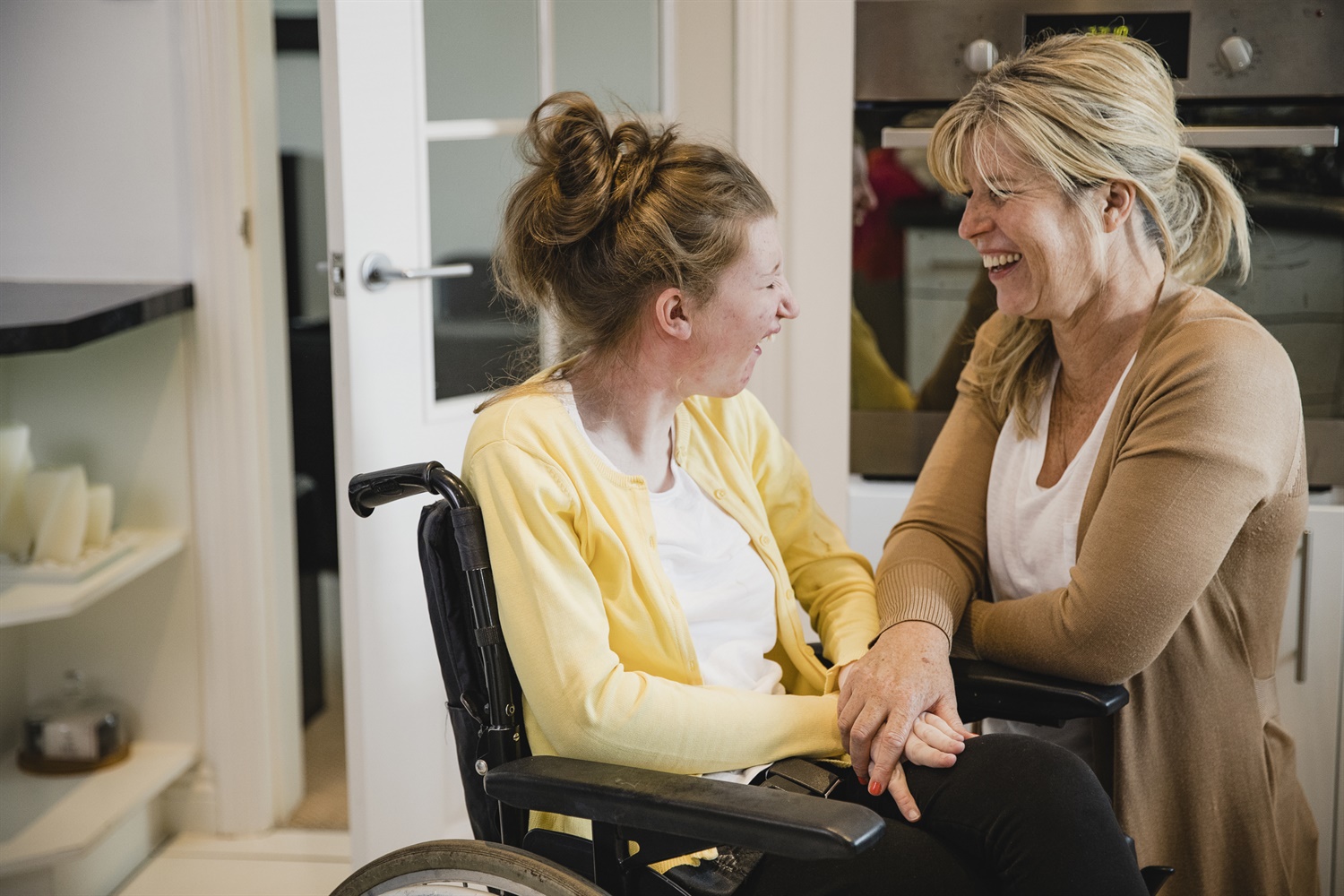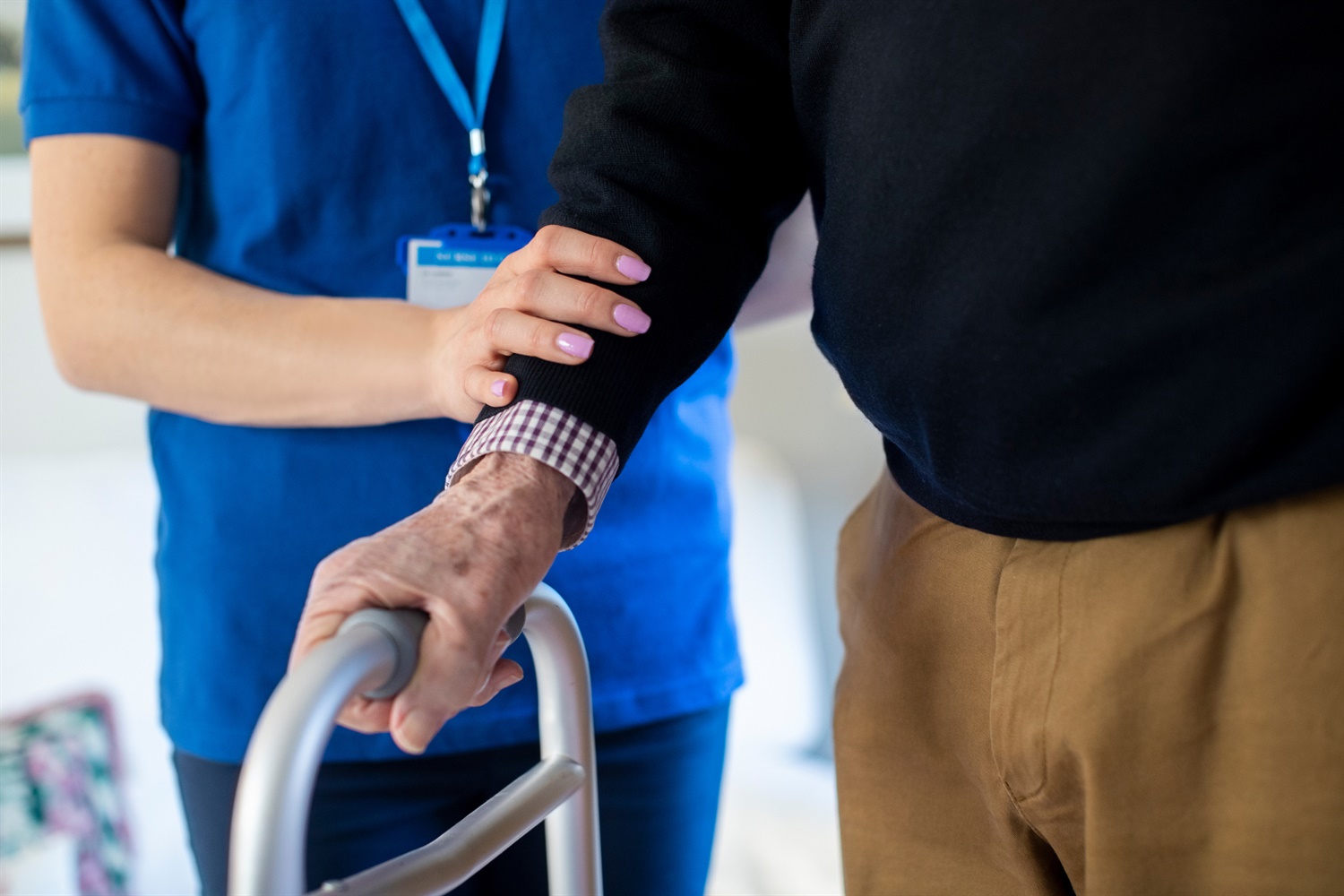05.08.20
Supporting complex needs and providing a caring environment
Dr Nichola Stefanou, Director of Clinical Practice, Home Group
With the UK government announcing a £62m funding package to speed up the discharge of people with learning disabilities and autism from hospital, Dr Nichola Stefanou explains why it’s so important for people to move into an appropriate home.
Currently there are more than 2,000 people with learning disabilities and autism housed within inpatient settings. This number is up from June, with the average stay over five years. Why has this not been addressed before now?
Everyone has the right to enjoy a good quality of life. It’s not acceptable that this group of people, and their families, have been left with no resolution to move into the community.
Since 2015, targets have been missed, leaving people in limbo. Last year, the NHS Long Term Plan aimed to reduce inpatients by half over five years, but not enough has been done. The impact of Covid-19 and lockdown has further compounded the issue.
This year, the Equality and Human Rights Commission (EHRC) began legal action against Government for failing to meet a previous Transforming Care target. Like any hospital stay, no one should have to remain beyond the end of their treatment.
I’m hopeful that this funding, and the creation of a newly established oversight panel, can speed up the process by improving collaboration between multi-disciplinary teams and enhancing levels of training in the transition process.
We’ve found that, too often, care and housing providers are brought into the conversation too late and it can often be unclear as to who leads when it comes to decision making. Central to the success of this program are clearer expectations and accountability across the system.
How long are people having to remain in hospital for and what’s the impact of these prolonged stays?
NHS data shows over a third of inpatients have a cumulative hospital stay of between one and five years - 37% of those in hospital have a stay of five years or more and 16% have spent at least a decade as an inpatient.
Last year, the Learning Disabilities Mortality Review by the University of Bristol highlighted that the average life expectancy of people with learning disabilities and autism stands at just 59 years. This means people are spending a significant proportion of their lives in clinical and inappropriate settings, often away from family.

There is also evidence to demonstrate over 3,000 recorded instances of restrictive interventions (physical, prone, mechanical and chemical) being used in April 2020, of which 805 were against children. This data is conservative as it only represents a small proportion of providers.
The use of restrictive practices is likely to reduce should a patient be transitioned into their own home and within a suitable environment. It’s difficult to create this in hospital which can lead to increased behaviours that challenge and exacerbate aspects of their condition.
Home Group’s care model is structured around people living independently and feeling enabled. It covers three key areas that cannot be properly addressed in hospital; wellbeing, personal skills and physical health.
Wellbeing focuses on what’s important to and for people, skills looks at areas that enable customers to retain or gain independence and physical health addresses personal behaviour and lifestyle risks. We also look at social motivators but don’t stop at housing; social inclusion, disability, loneliness and low self-esteem all detrimentally impact health.
We recognise that some currently living long-term in a hospital setting come with the most complex needs. This should not prevent all parts of the system from coming together to create a safe home, care package and long-term risk management plan to enable them to move.
What has been the impact on those you have supported to transition out of hospital into their own home, and what have you learned from them?
One of our customers, Sam*, has autism, ADHD and severe learning disabilities. He was originally detained under Section 3 of the Mental Health Act and had to sacrifice his freedoms, hobbies, friends and family as he was moved into a clinical setting far from his home.
Having a private garden was one of the most important things to Sam. Home Group ensured it was not overlooked and free of areas that may cause him distress. Family contact was also important, so his home needed to accommodate regular visitors as well as his support team.
Sam moved into his new Home in April 2019. He’s adjusted well to community life and is enjoying his garden, regular visits from his family and, most importantly, the quality of life he deserves.

Case studies, like Sam’s, demonstrate how the move to more independent living improves lives. These stories aren’t often shared and should be used more widely to increase confidence across all sectors to support the transforming care programme.
We’ve also found that having the appropriate robust clinical infrastructure within Home Group allows us to effectively manage the transitioning risk and therapeutic requirements, alongside statutory services. Positive Behaviour Support plays a vital role; it enables our colleagues to track behaviours, review plans and fosters the right culture, allowing us to deliver bespoke support.
Finally, never make assumptions when it comes to supporting someone into their long-term home and don’t under-estimate the settling-in period. The different approaches and activities on offer from a keen new support team can result in too much engagement too soon. Customers need both time and investment.
What role does an individual’s family currently play in the process?
Families are hugely undervalued. They can go from caring for an individual themselves, to being unable to cope and seeing their loved one taken from their home. I’ve also seen families sell their homes and relocate hundreds of miles away to be near loved ones - only for them to be moved again.
Ensuring people have the right home, in the right place, with the right care is central to our work, and including family in the acquisition of properties has proven vital to achieving this.
For Home Group, when acquiring a property, we want it to be as near to the customer’s family as possible. As well reducing the strain on the individual, we can alleviate some of the challenge’s families have to face - far too often they feel marginalised and ignored.
I have found the engagement, dedication and passion from the families of our customers extremely motivating. We aim to use their insight and knowledge to enhance our offer and ensure a successful transition. I hope we can provide a voice for families and customers to make sure that the significant barriers facing the transforming care program are removed.
Some might be surprised to hear Home Group talking on these issues. Why is it something you, as a housing association, are so involved with?
There are still those who don’t think the housing sector has the skills to support people with complex needs. The specialist care and support side of the organisation is one we’ve invested in considerably over the last few years.
Our specialist clinical team has grown from two to 26 as we’ve recruited a highly skilled workforce that includes occupational therapists, nurses - mental health and learning disabilities - and psychologists, including forensic psychologists.
To speed up the process of discharging people there must be more trust placed in external partners, like Home Group. Understanding commissioning routes and the impact on housing costs is essential. I believe that the transforming care program also needs a significantly higher profile nationally.

Having both care and housing experience means we can tackle some of the common issues that arise in the process. Access to property, for example, particularly in London and the South East, is by far the biggest barrier in getting someone out of hospital.
Too often unsuitable properties are put forward. With an existing property portfolio, we can either look to adapt what we have, secure something suitable or build a bespoke home, all without local Transforming Care Partnerships needing to foot the upfront costs.
We’ve also seen providers put off by potential delays in payments and the financial risks involved. To properly address health inequalities the system must become better integrated. Key to this is ensuring improved communication between the NHS and support services.
*Name has been changed.
Dr Nichola Stefanou leads on Transforming Care and heads up the development of practice, clinical governance, new interventions and innovations at Home Group. She has held roles within NHS foundation trusts and health care providers and has an extensive background in clinical governance education.
Read Home Group’s Transforming Care discussion paper here: https://www.homegroup.org.uk/commissioners